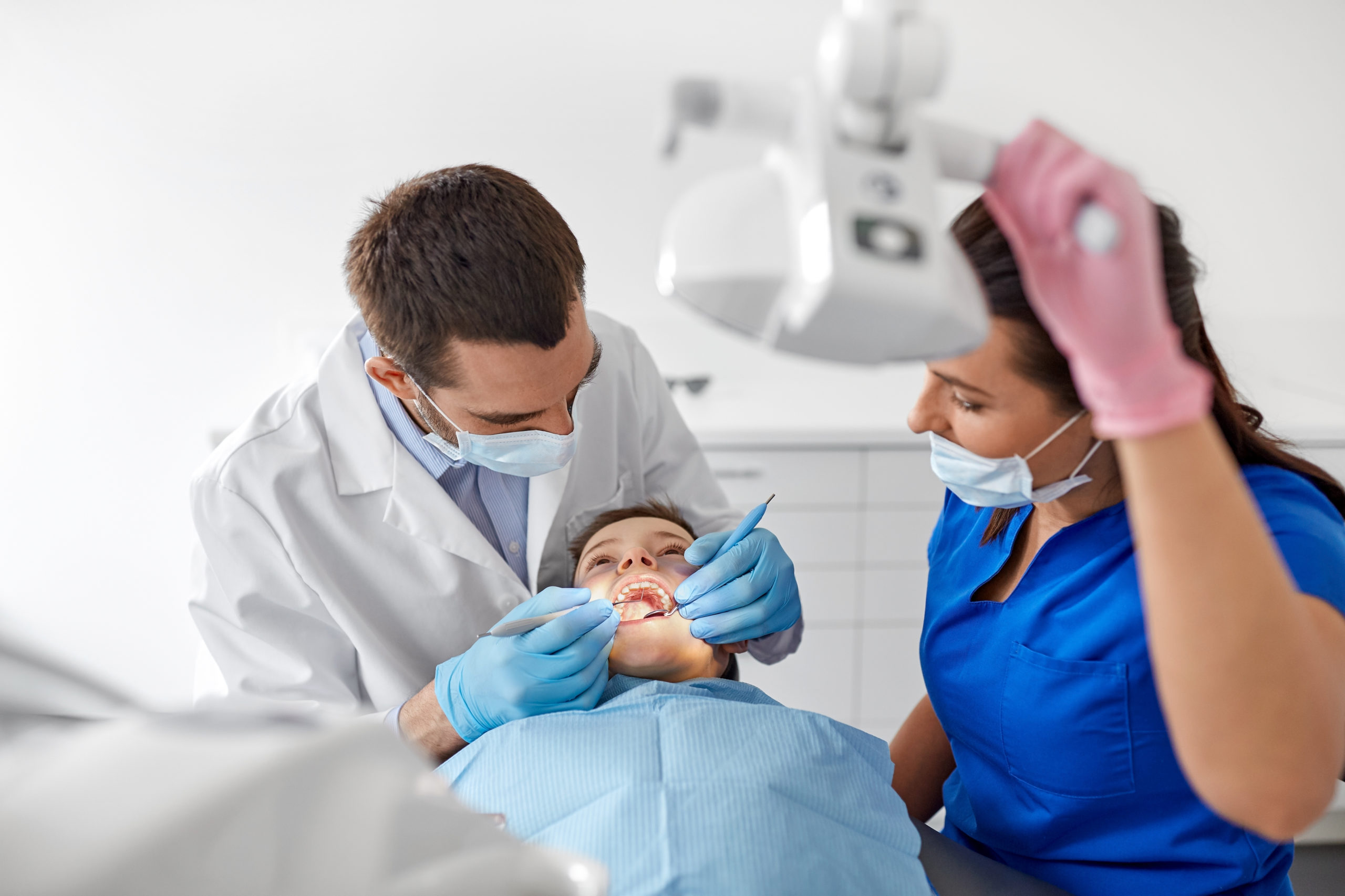Dentistry and Dental Hygiene

Dentistry and dental hygiene careers are numerous. Dentistry and dental hygiene careers include dental surgery, hygiene, dental technology, and nursing. Most dentists work as general practitioners. They handle a variety of dental needs. Others specialise in areas such as orthodontics, which can prove to be extremely lucrative.
Dentists and dental hygienists are those who safeguard the health of patients. They also promote dental welfare and maintain the honour and integrity of the dental profession. Both professionally and financially rewarding, dentistry is a great career to get your teeth into (sorry…).
Education
UCC and Trinity offer five year dentistry courses. Topics include:
- Oral Diagnosis
- Restorative Dentistry
- Periodontology
- Orthodontics
- Oral Health & Development
- Oral Surgery
Students often spend a lot of time in the laboratory. By third year they treat real patients in dental hospitals.
Two-year Dental Hygiene diplomas are available at UCC and Trinity College. These include modules such as:
- Infection Control & Immunity
- Basic Preventive & Periodontal Care
- Dental Radiography
- Social Concepts in Patient Care
Qualifications in Dental Nursing are also available at Level 5 from a number of education providers. These include Cavan Institute and Marino College of Further Education. Level 6 qualifications are available from Athlone IT. Trinity has a Level 7 course. There is a also two-year diploma from UCC. Aside from clinical topics such as Dental Studies and Anatomy, student nurses are taught the practical skills – infection control, business administration, and so on – required to run a dental surgery safely and efficiently. Cork College of Commerce provides a Level 5 Dental Reception course.
Trinity College run a unique three-year degree in Dental Technology. A dental technologist designs and creates prosthetic dental devices (e. g. dental alloys, porcelain restorations), and is a key member of the dental team. Potential careers exist in dental hospitals, dental research, and dental forensics.
The Work
The basic day-to-day business of a dental surgeon involves the filling, straightening, extracting, crowning, and cleaning of patients’ teeth. They may also fit dentures and perform corrective surgery on gums and supporting bones in order to treat disease. Dentists must be proficient in the use of a variety of equipment, including drills and X-ray machines, and instruments such as forceps, scalpels, syringes, mouth mirrors, brushes, and probes.
During the course of their work, dentists administer anaesthetic, write prescriptions for medication, and advise patients on oral care to prevent future problems. Depending on the job, they may have to perform administrative tasks such as equipment purchasing and bookkeeping.
Dental hygienists often work alongside dentists in practices or within the community dental service. Their duties include cleaning teeth by removing plaque and tartar, polishing teeth, taking X-rays, administering local anaesthetic under the supervision of a registered dentist, and applying temporary coatings and sealants. Dental hygienists can also plan, implement, and evaluate promotional and educational oral health activities for groups and individuals.
Dental nurses are those who assist in all the activities of a dental surgery, from assisting the dentists with clinical procedures (e. g. preparing and sterilising instruments, comforting the patient) to administrative duties such as managing patient records, appointments, and payments.
Did you know?
Some dentists recommend that toothbrushes be kept at least six feet from the toilet in order to avoid possible contamination from the airborne bacteria that result from flushing.


Leave a comment